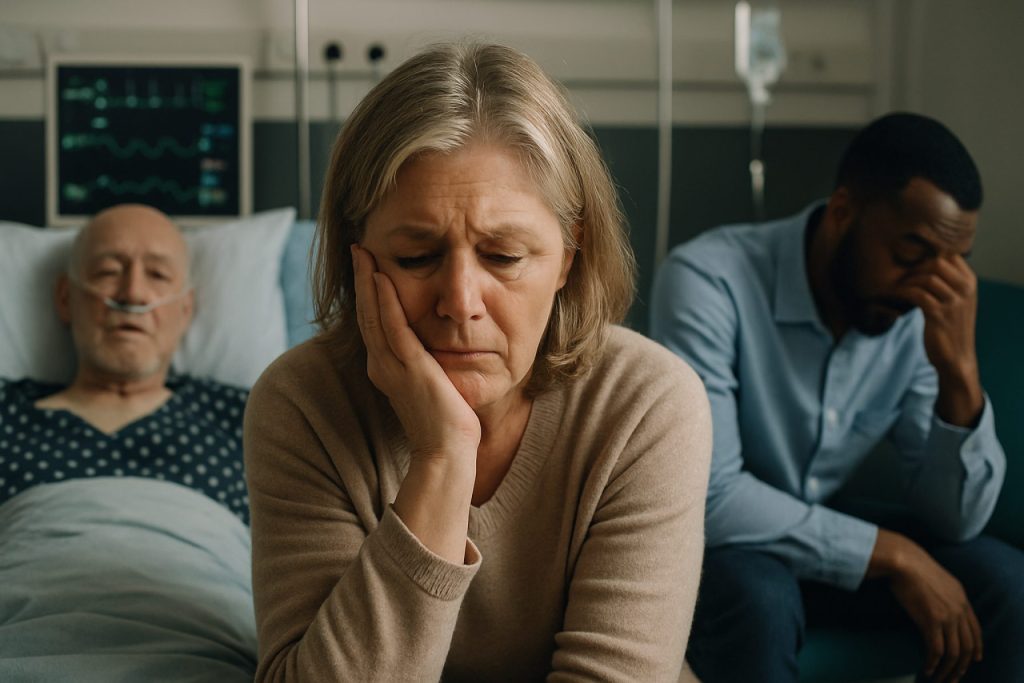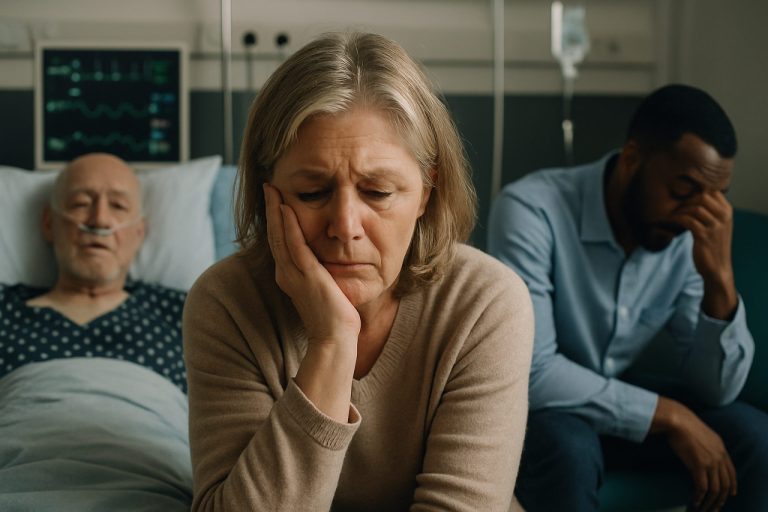
Family Emergency Overload: My Week of Losing Control, Facing Cancer Fears, and Learning Hard Truths About Love (and Dogs)
When crisis collides with caregiving: How one family faced seizures, dementia, and a terrifying diagnosis in a single whirlwind week.
- 3 Separate Health Emergencies — One week, three major life events for a single family
- 28% Rise — U.S. dementia diagnoses expected to surge by 2025
- 9 in 10 — Family caregivers say stress skyrockets after a loved one’s diagnosis
- 68 Million — Americans own dogs, many with chronic conditions like diabetes
This was the week that changed everything. One moment, life trudged on with its usual worries and routines. The next, panic erupted. Our diabetic dog, Spartacus—battling age and illness—suffered a dramatic seizure on our bed. Blood stained our favorite quilt. The horror was real, but I dissociated, the surreal nature of crisis making everything blurry.
Nothing prepares you for when every fear you’ve dreaded—dementia, terminal illness, the death of childhood heroes—crashes down at once. There’s no training for being the anchor when your family depends on you, and each emergency seems to blur into the next.
Q: How Do You Cope When Every Day Brings a New Emergency?
The truth: most of us barely do. That same week, as our aging dog hung on—patched together with medication and sheer willpower—we finalized power of attorney documents for my aging mother and stepfather. Both in their eighties, both declining in ways too raw to name.
Watching someone you love slip away to dementia is like slow grief. Some days, my mother forgets her grandchildren; on others, she remembers a world that no longer exists. My stepfather, Ken, now lives with Parkinson’s—adamantly refusing most treatments, determined to face his illness on his own terms.
Our home filled with the echoes of their confusion. Yet somehow, my mother and Ken found a fragile happiness together, reading newspapers, reminiscing about vanished worlds—unaware of what lay ahead.
Q: When a Health Scare Strikes, What Should You Do First?
Then the phone rang at 3 a.m.: Matt, my partner for over two decades, calling from a hospital bed with devastating news. Doctors had found a mass on his pancreas—a phrase wrapped in fear and uncertainty. In a family defined by autoimmune struggles, not cancer, this twist felt trickier and unfamiliar.
The days blurred. We stared in silence, trying to shield our kids from panic. Should we lie? Should we tell them “it’s just a mass”—not a tumor, not cancer? We tried to pretend life was normal, hiding the sharp reality gnawing at the edges.
A surprising detail stuck out: Matt developed a strange, sickly smell—a bodily signal I instinctively understood but couldn’t voice. When someone you love teeters on the edge of illness, the world feels fragile. I was haunted by the idea of becoming a 44-year-old widow.
How to Survive Caregiving and Crisis in 2025
- Have a Plan: Legal paperwork—like powers of attorney—matter more than you think.
- Protect Mental Health: Seek professional help or connect with caregivers via sites like Alzheimer’s Association or American Cancer Society.
- Don’t Go It Alone: Lean on friends, family, and online communities for support.
- Let Yourself Feel: Grief, rage, and even flashes of desperate humor are normal when times are dark.
Stories like ours aren’t rare. Millions face the “caregiving sandwich”—aging parents, sick spouses, struggling children—and carry on through sleepless nights and endless worry. The burnout, uncertainty, and heartbreak are real, and in 2025, as diagnoses rise and resources stretch thin, the need for community and compassion has never been greater.
Q: Where Can Family Caregivers Get Support?
Start with hotlines and online guides from trusted sites like CDC and National Institute of Mental Health. Social support networks and professional counseling can turn despair into hope—and help you see you’re not alone on this bumpy road.
Don’t let crisis swallow you—take these steps to reclaim control, even in the hardest weeks of your life:
- ✔️ Review emergency contacts and update medical directives
- ✔️ Set up family check-ins (virtual or in-person)
- ✔️ Secure a support network online or locally
- ✔️ Take breaks, even micro-moments, for self-care
- ✔️ Speak openly (with yourself or a counselor) about your fears
You might not be able to stop the storms, but you can weather them with love, honesty, and help. If your week feels like a year, remember: you’re not alone. Reach out, grab the lifeboat—and keep going.



